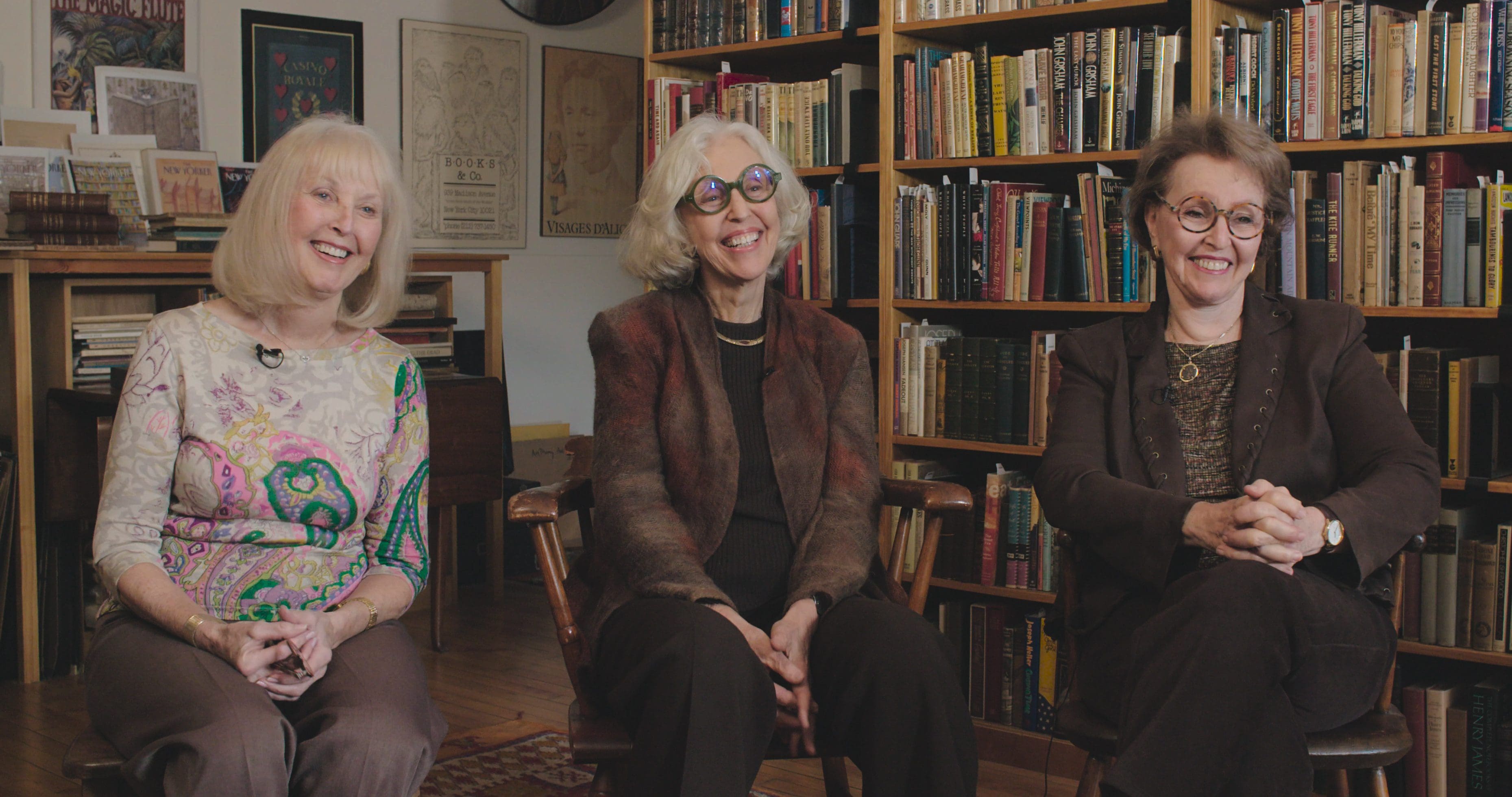
Few subjects probably seem as unlikely to make a good documentary as the antiquarian bookselling business. Bookstores are slowly dying off thanks to Amazon and the rise of the ebook, who cares about a bunch of musty, leather-bound tomes? The answer, as director D. W. Young’s new documentary, The Booksellers, suggests, is everyone.
Young starts by helping the viewer understand the industry’s history, one that is–considering how many of the subjects inherited their businesses from parents–often entwined with individual family histories. There’s Stephen Massey, who started in the family bookshop, which James Joyce name checks in Dubliners. There’s Nancy Bass Wydern, third-generation owner of New York City’s famous The Strand Bookstore, whose father Fred, was famous for his quick appraising skills. Perhaps most interesting of all are, though, are Judith Lowry, Naomi Hample and Alina Cohen, three sisters who inherited Argosy Book Store in midtown Manhattan from their father. Despite pushing back at letting them work in the store when they were young, the sisters explain that their father eventually revealed he hoped they’d take over the business all along.
Still, while the store has been open since 1925, considering its location at 59th street in one of the city’s most expensive neighborhoods, it seems a wonder that even a store that now sells autographs as well as books could stay open long enough for them to take over. The explanation, as the sisters note, is fairly simple: their father had the “foresight” to buy the building. And while realtors call at least every week offering to buy it, as Judith’s son Ben notes, no amount of money (at least so far) would be enough to convince them to sell because they love the business so much.
However, while Argosy has managed to stay afloat even as the bookselling business changes, others haven’t been so lucky. As Bass Wyden notes, The Strand was once only one of many in the area that used to be called “Book Row”, but the city has slowly gone from 368 bookstores in the ’50s to only 79 now. Perhaps because physical books and the industry that used to sell them already feel like they’re dying out, many of the film’s subjects can feel like eccentrics from a different era. However, rather than make fun of these people, much of the film’s pleasure comes in seeing their passion for their wares (even if Young has a frustrating habit of not clearly naming everyone).
One of the film’s best moments comes as Young and crew interview seller David Bergman in his apartment. A collector of books on paleontology and history in particular, he begins to show off a massive book about late 18th century monographs on fossil fish with pages that fold out to life size scale. As he displays an image of what appears to be a large sturgeon fossil, he smiles at the camera and jokes, “Playboy, eat your heart out.” Still, great as that and many moments are, what ultimately makes The Booksellers such an enjoyable watch is that it’s just as good at reveling in this world’s eccentricities as it is at giving the viewer a compelling history of the business and how it’s evolved as first commercial bookstores and then online distributors took over the industry.
One particularly fascinating passage follows Arthur Fournier of MoMA’s PS1. Primarily interested in “conflict materials” from Afghanistan and other “ephemera,” he also explains he oversees the archive of journalist Michael Holman, the first person to use the term “hip-hop” in an issue of the East Village Eye in January 1982. Listening to Fournier rattle off facts about hip-hop’s history or listening to art collector/archivist Syreeta Gates quote lyrics as she talks about how they influenced her family and her chosen profession, it becomes clear that the booksellers shown here aren’t just chasing curios, but preserving cultural history.
Near the end of the film, a quote from Susan Orlean’s The Library Book appears. “Books are a sort of cultural DNA,” it reads in part and by the end of Young’s film, it feels like he’s not only proven that statement, but that the collecting, curation and yes, even selling, of books is its own culture too. The world The Booksellers explores is niche, but it seems vibrant, fascinating and maybe even vital here. The film’s cast of characters is as eclectic as the books they collect and it’s impossible not to want to delve deeper into that world by the time the credits roll. Luckily, those fortunate to see the film in New York this weekend can head over to the International Antiquarian Book Fair to see if the film’s subjects are equally charming in real life. Who knows, maybe they’ll even find a good book too.

